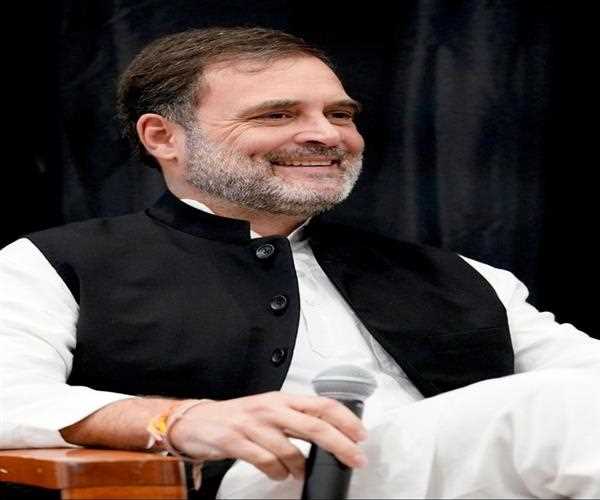Rahul Gandhi has often been described as a political leader whose vision is confused, directionless, and ineffective. This man is the grandchild of the first Prime Minister of India, Jawaharlal Nehru, and the child of the slain Prime Minister, Indira Gandhi and yet, it seems, he has not been able to carve his role as a dynamic leader in the country’s politics. Failing in establishing direct links for at least a time vigorously and properly coordinating the masses and to come up with a proper vision for the country he has eroded credibility in the best political regimes.
Some other flaws with Rahul Gandhi, constituency hopping is one of the harshest indictments leveled against him. Politics has at times seen him as detached or half-interested at best due to his on and off type of political involvement specifically during critical junctures. Such a pattern has eroded his authority of a responsible commander and questioned his sincerity in tackling some critical problems affecting the nation. People look up to their leaders to set an example but seeing Gandhi particularly inactive most of the time his party and supporters have cause to doubt his commitment.
Critics of Rahul Gandhi’s communication style have also said they rarely carry any form of tactical intricacy. He usually makes his speeches based on certain assumptions and does not offer precise solutions to emerging issues. These empty policies have kept him from connecting with voters in their pursuit of a substantive ‘down to earth’ leader. Also, he has devoted himself into pointing out what his rivals are doing wrong rather than painting a clear credible picture of how he would want to lead the nation, and has consequently lost trust from the people.

Since he assumed charge of the party, losses in elections show that he lacks the prowess to lead his formation well. He has said that the Congress Party, once the premier political party in India, has lost a lot of clout and followers during his rule. Some blame this squarely on Rahul Gandhi’s inability to transform the party's center or mobilize the cadre. His absence has enabled opponents to focus on him and push through measures that continue to diminish the Congress’s roles and responsibilities.
Also, his managerial approach to undertaking assignments has on many occasions been deemed more responsive than strategic. Although, he is rather reactive than proactive, which means that he reacts to the stimuli introduced by the political events. This has made him defensive and taken a reactive stand ahead of more aggressive CEOs who take control of the conversation. This has been made worse by Mr. Mugabe’s inability to grab chances or modify his political strategies, thus strengthening the view that he lacks leadership skills.
Conclusion
In conclusion, Rahul Gandhi’s leadership's weakness seems unable to address the challenges characteristic of contemporary Indian politics. His lack of policy consistency and coherence of goals as well as the inability to build public and within-Party support for proposed objectives and policies are major drawbacks. He has failed in his leadership role, and since he is heading the Congress Party, the party has not known how to reinvent itself after it lost power. Leadership requires formidableness, participation and anticipation features that Gandhi has not proven capable of in the course of his leadership tenure. Unless these shortcomings are fixed, his ability to steer the company forwards has to be seriously doubted.